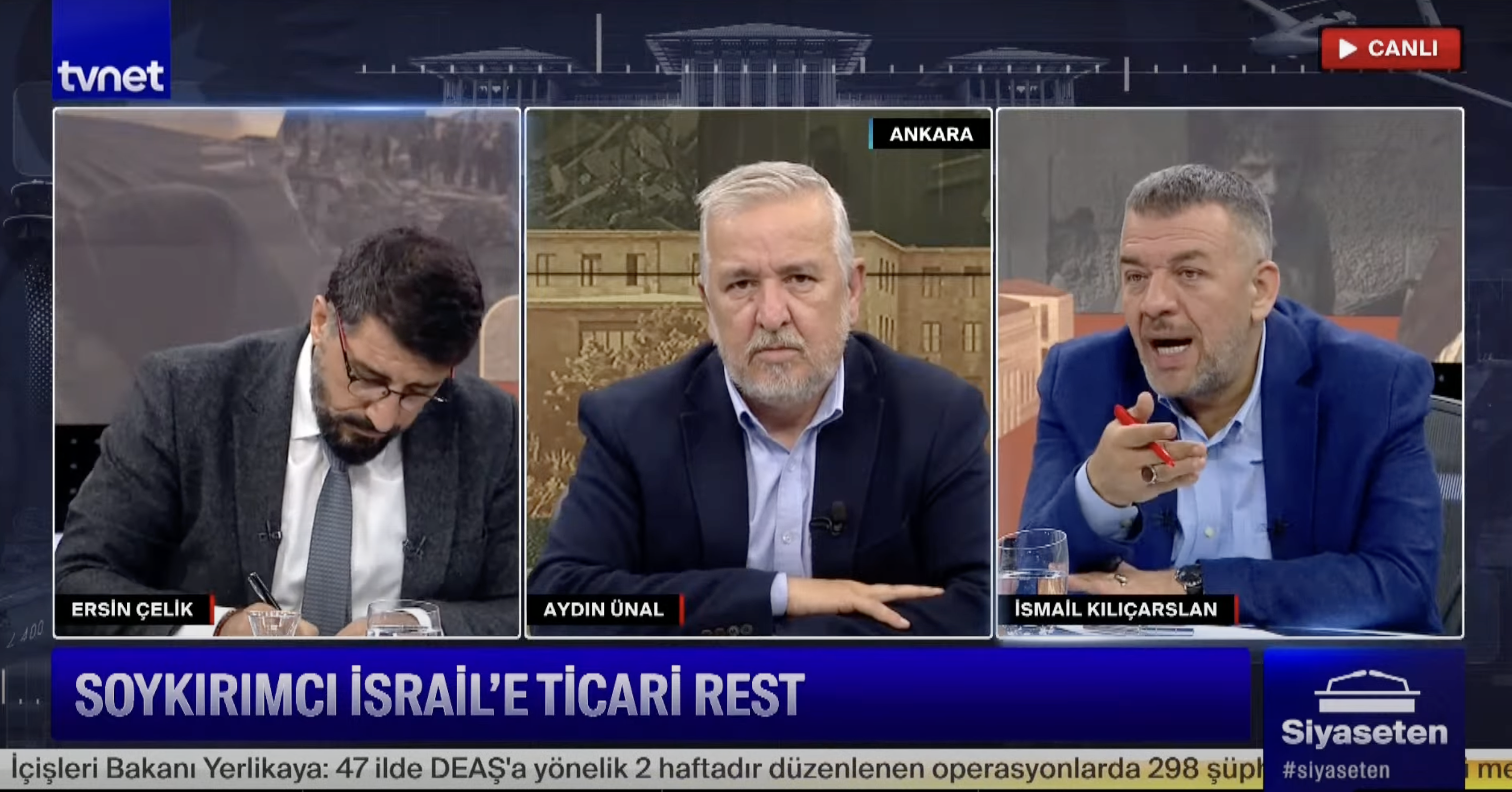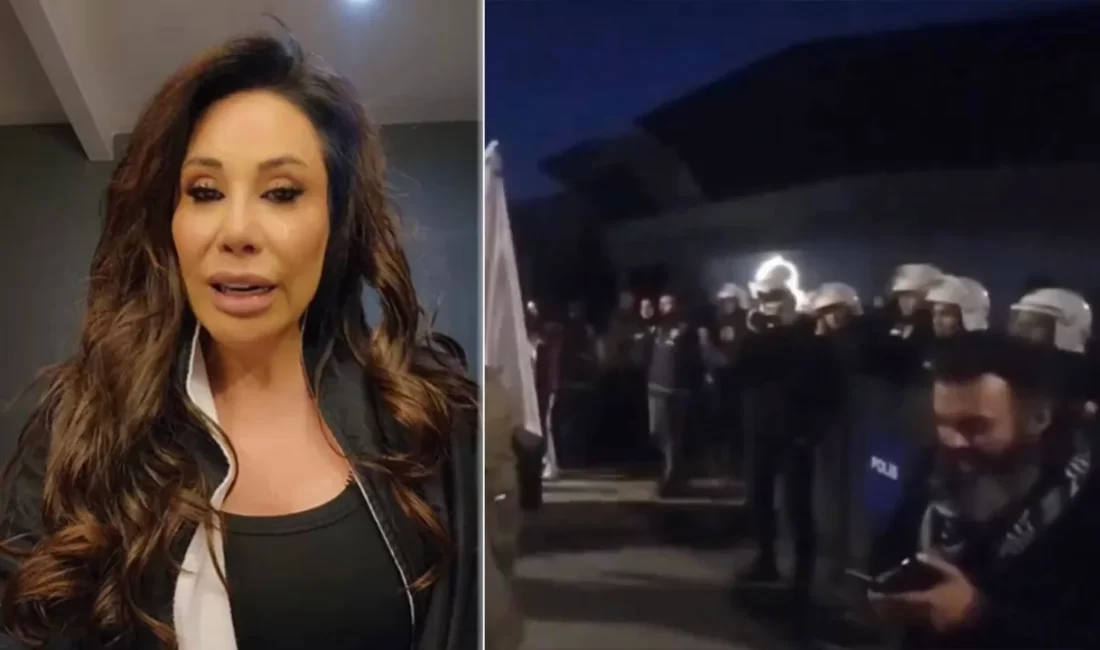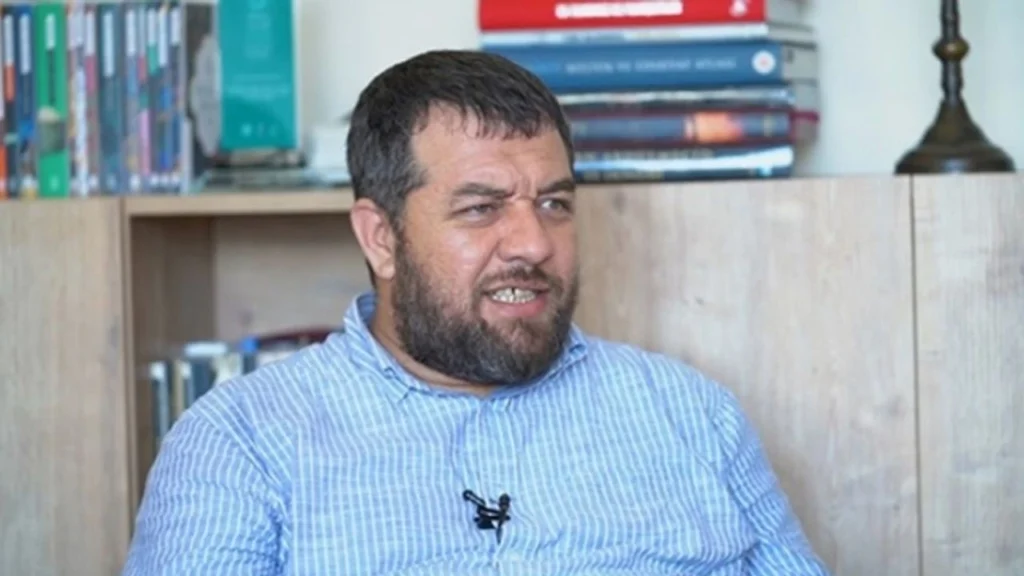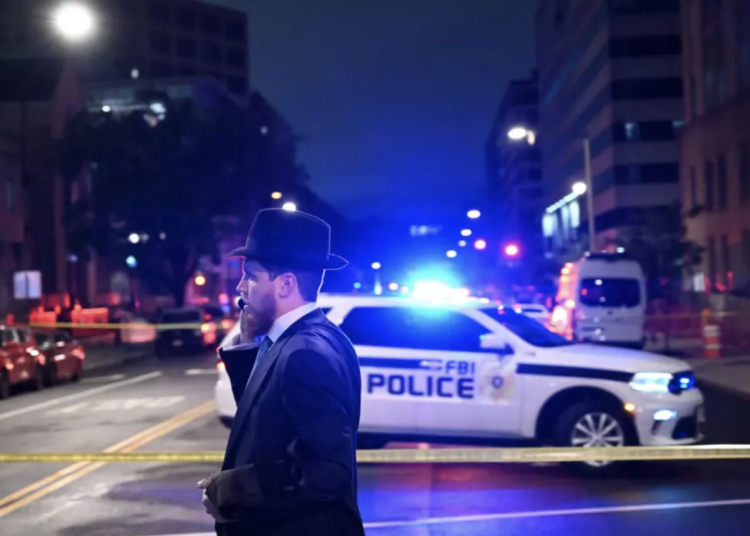Levent Kenez/Stockholm
In a chilling display of hate speech aired on the Turkish government-funded TV Net channel on May 21, İsmail Kılıçarslan, a commentator and columnist known for his staunch support of President Recep Tayyip Erdogan, called for the mass killing of “Zionists,” asserting that “humanity has no other choice left.”
Kılıçarslan’s remarks, which have sparked outrage online and among international observers, were broadcast live during a political commentary segment. The commentator claimed that all non-violent methods of resistance against Zionism had been exhausted and called for what he described as a “final step.”
“Let me say it again,” he declared. “The thing to do is obvious: to kill Zionists. Humanity has already done everything else it could — protests, parliamentary action, international appeals. All that remains is to eliminate them one by one from the face of the Earth.”
He added that the world could no longer sustain what he claimed was the daily killing of 100 Palestinians, half of whom he said were children, by Zionists. “No conscience can withstand this anymore. We should have already started killing Zionists — Muslim, Hindu, Jewish, atheist Zionists — it doesn’t matter. They all must be eliminated.”

Kılıçarslan’s statement appeared to conflate political Zionism with a broad category of ethnic and religious identities including Jews and others, stoking fears of incitement to genocide. The comments, made on a network with close ties to the Turkish government, came at a time of heightened tension and increasing antisemitic rhetoric in the country’s pro-government circles.
During the same broadcast, Kılıçarslan also took aim at those defending Linet Manashe, an Israeli-Turkish pop singer who was recently forced to cancel a performance in Istanbul due to growing anti-Israel sentiment.
Manashe, a dual citizen and longtime performer in Turkey, had been scheduled to sing at Maslak Yeni Gazino on May 18. However, a group of pro-Palestinian demonstrators gathered outside the venue, chanting slogans such as “Get out of Turkey.” As tensions escalated, police intervened and the visibly shaken singer was escorted out of the building through a back exit for her safety, Turkish Minute reported.
In a video shared from her dressing room, Manashe pleaded tearfully for help from President Erdogan, first lady Emine Erdogan and the Turkish public. “I’m very upset. I don’t feel safe,” she said. “I am a Turkish citizen and an artist. Until now, I’ve only existed through my voice. Please don’t leave me alone in this.”

Rather than condemning the intimidation or sympathizing with the singer, Kılıçarslan mocked and vilified her supporters, suggesting they were undermining the Palestinian cause by showing solidarity with an Israeli citizen regardless of her Turkish identity.
Kılıçarslan, who previously faced backlash even within Islamist circles for suggesting that Gazans should be resettled elsewhere, may be escalating his rhetoric in an effort to redeem himself among hardliners. His call for violent action appears to be part of an increasingly dangerous trend in Turkish political discourse.
The TV Net broadcast comes amid growing concern over institutional and state-sanctioned antisemitism in Turkey. Prominent political and religious figures including leaders with close ties to President Erdogan have increasingly used hostile and inflammatory rhetoric under the guise of solidarity with Palestinians.

Ali Erbaş, head of Turkey’s Directorate of Religious Affairs (Diyanet), urged Muslims to boycott Israeli-affiliated products, implying that bringing such items into one’s home calls into question their religious identity. In a March 5 speech at Ankara’s Millet Mosque, Erbaş said, “If a Muslim supports those who back oppressors … they should question their faith.”
Erbaş previously drew disturbing comparisons between Jews of biblical times and modern Jews, accusing them of conspiracy and destruction. He claimed that “descendants of those troublemakers” were repeating the same patterns today, implying that protest and morality mean nothing to what he called “corrupt individuals.”
A bill backed by the ruling Justice and Development Party (AKP) and its Islamist allies seeks to revoke Turkish citizenship from dual Israeli nationals and confiscate their assets. The proposal, if passed, would set a legal precedent for state-backed persecution based on ethnic or national identity.
The International Union of Muslim Scholars (IUMS), led by Dr. Ali al-Qaradaghi, a longtime ally of Erdogan, had also endorsed violence in the name of Palestinian resistance. In a statement following anti-Israel riots at a Russian airport in October 2023, al-Qaradaghi warned that ignoring the actions of Zionists would lead to “unforeseen consequences,” effectively justifying mob violence and unrest.
“Even if governments remain silent, or hypocritically endorse these heinous acts … the people will not remain silent,” the IUMS statement declared.
Human rights groups and observers are sounding the alarm over what they see as a troubling shift in Turkey’s political discourse. Statements like those made recently by commentator Kılıçarslan are not isolated outbursts, they warn, but signs of a broader normalization of extremist rhetoric at some of the highest levels of Turkish society.
President Erdogan, while vocal in his condemnation of Israel’s military operations in Gaza and portraying himself as a defender of the oppressed, has remained notably silent in the face of growing antisemitic and anti-Israeli sentiment at home. In some cases, his administration’s silence has been interpreted as tacit approval or even subtle encouragement of such rhetoric.
Meanwhile, two staff members from the Israeli Embassy in Washington, D.C., were shot and killed on Wednesday night as they were leaving an event at the Capital Jewish Museum, located in the same city, according to US. officials.












